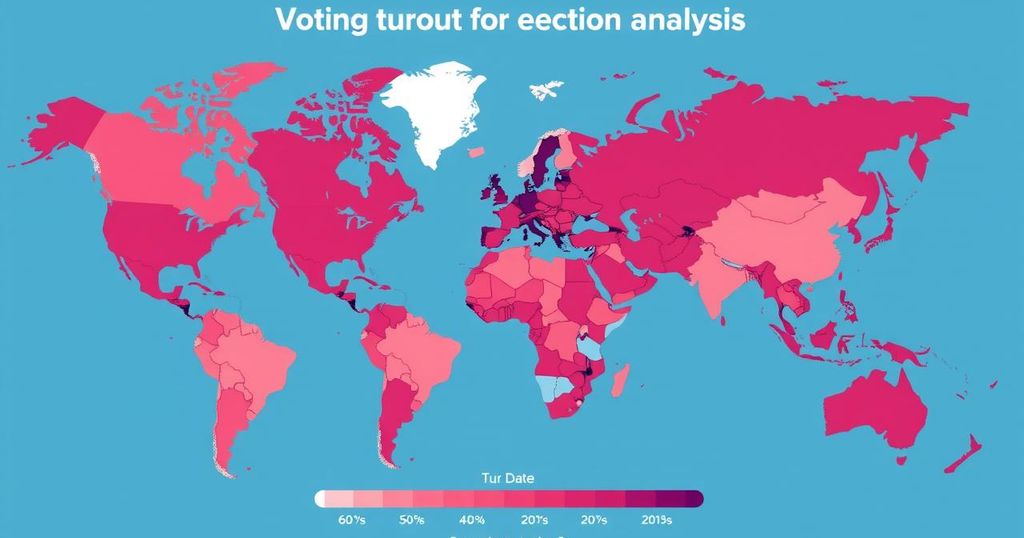In 2024, over 60 countries held elections, engaging nearly half of the world’s population, marking a significant moment in democracy. However, the outcomes indicated a focus on immediate self-interest and economic concerns, with notable incumbents like Joe Biden and Narendra Modi facing electoral challenges. The election results illustrate a global trend of voters prioritizing personal economic situations over collective issues, while nations such as Russia displayed egregious violations of democratic norms.
In 2024, democracy saw an unprecedented turnout as over 60 countries, constituting nearly half of the global population, participated in elections. This historic engagement in political processes reflects both progress and challenges. Despite the high levels of participation, the outcomes suggest a tendency among voters to prioritize immediate personal interests, often overshadowing collective societal needs. Economic considerations played a pivotal role, influencing electoral choices across various nations. Notably, leaders like Joe Biden and Narendra Modi faced significant setbacks, demonstrating that incumbents are often punished at the polls despite their achievements. The elections also underscored the resilience of democracy, with nations like Germany witnessing shifts in leadership and others, such as Bangladesh, experiencing protests against established figures.
The results of these elections revealed a prevailing focus on economic issues over pressing global concerns like climate change. In the United States, voters opted for Donald Trump, despite his controversial history, driven by dissatisfaction with the economy under Biden’s administration. Similarly, in India and South Africa, traditional political parties faced challenges from both left- and right-wing populist movements, highlighting a broader global trend of rejecting mainstream politics in favor of alternatives.
One of the most grievous examples of democratic failure was Vladimir Putin’s overwhelming electoral victory in Russia, marred by allegations of systemic suppression of opposition. Such stark contrasts in the electoral landscape raise questions about the future of democracy worldwide. The situation underscores the interconnectedness of global events: the outcomes in one nation can significantly influence political dynamics elsewhere.
As the 2024 elections conclude, the lessons learned highlight the complexities of global democracy and the cyclical nature of political accountability. Countries emerging from long-standing authoritarian regimes, such as Syria, may find inspiration in the collective will demonstrated through these elections, suggesting a resilient and adaptive democratic ethos may continue to unfold globally.
The 2024 elections marked a significant moment in global democracy, with nearly half of the world’s population being involved in selecting their leaders across over 60 nations. This level of engagement highlighted both the promise and pitfalls of democratic processes, where economic concerns often overshadowed larger issues such as climate change. Notably, the electoral tide seemed to favor populist sentiments, challenging traditional political structures in many countries. These shifts demonstrated how interconnected world events and national policies influence electoral outcomes, revealing the global implications of local voting decisions.
The 2024 elections serve as a stark reminder of the fluctuating nature of democratic engagement and the influence of economic factors on electoral outcomes. While the collective participation of nearly half the world in voting is a promising development, the results reflect a broader tendency towards immediate self-interest among voters. Furthermore, the contrasting experiences of nations highlight the ongoing struggle between democracy and authoritarianism, shaping the political landscape globally as we look ahead to future electoral events, with significant implications for global stability and governance.
Original Source: edition.cnn.com






